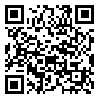Volume 5, Issue 9 (11-2014)
rap 2014, 5(9): 13-24 |
Back to browse issues page
Download citation:
BibTeX | RIS | EndNote | Medlars | ProCite | Reference Manager | RefWorks
Send citation to:



BibTeX | RIS | EndNote | Medlars | ProCite | Reference Manager | RefWorks
Send citation to:
Hashemi S R, Dastar B, Hassani S, Jafari Ahangari Y. (2014). Effect of Trimethylglycine and Dietary Protein Levels on Blood Electrolytes and Lipids Concentrations in Broiler Chickens Subjected to Heat Stress. rap. 5(9), 13-24.
URL: http://rap.sanru.ac.ir/article-1-391-en.html
URL: http://rap.sanru.ac.ir/article-1-391-en.html
Gorgan University of Agricultural Science and Natural Resources
Abstract: (6339 Views)
This experiment was conducted to compare the effect of trimethylglycine supplementation in diets with sufficient or insufficient quantities of protein on blood electrolytes and lipid concentrations in broilers subjected to heat stress condition. Ross 308 broilers were fed with four dietary treatments from 21 to 42 d of age. The treatments consisted of a diet with sufficient levels of protein (protein recommendation by NRC, 1994) and a low protein diet (0.85 protein recommendation by NRC, 1994) that supplemented with trimethylglycine at 1.5 g/kg of diet. Each of 4 dietary treatments was fed to six replicates with 18 chicks in each replicate. Four birds were wing banded in each replicate to determining of blood parameters before and after heat stress challenge at 35 d. Birds were daily exposed to 37oC for 8 hours. Dietary protein levels had significant effects on body weight gain in the grower phase (P<0.05). Body weight gain was not significantly affected by dietary trimethylglycine levels from 2l to 42 d (P<0.05). Broiler feed consumption was affected by protein level (P<0.05). Feed intake of broiler chickens fed diets with NRC protein levels was higher than those birds fed the low protein diet. Supplementing of trimethylglycine and dietary protein level had not significant effect on feed conversion ratio (P<0.05). The results of the experiment also showed that dietary protein level, trimethylglycine supplementation and sex had not significant effect on blood electrolytes and lipids concentrations before and after heat stress challenge (P>0.05). Heat stress significantly decreased blood potassium (from 4.34 to 3.56) and increased triglyceride (from 64.01 to 80.46), cholesterol (from 112.69 to 135.57) and HDL concentrations (from 67.75 to 74.49) (P< 0.05). Heat stress had not significant effect on blood sodium and calcium concentrations.
Type of Study: Research |
Subject:
Special
Received: 2014/11/16 | Revised: 2019/02/27 | Accepted: 2014/11/16 | Published: 2014/11/16
Received: 2014/11/16 | Revised: 2019/02/27 | Accepted: 2014/11/16 | Published: 2014/11/16
| Rights and permissions | |
 |
This work is licensed under a Creative Commons Attribution-NonCommercial 4.0 International License. |




